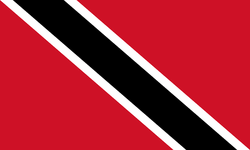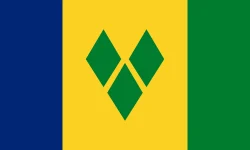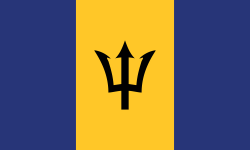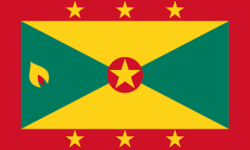Smart Seas Toolkit for Disaster Resilience ("Smart Seas") Project
About
The Smart Seas Toolkit (SST) for Disaster Resilience (“Smart Seas”) project is a joint initiative of the International Telecommunication Union (ITU), Caribbean Telecommunications Union (CTU) and the Telecommunications Authority of Trinidad and Tobago (TATT), supported by the Government of the Republic of Trinidad and Tobago which aims to increase the resilience and ultimately preserve the lives of Caribbean small-scale fishers (SSF) through information and communications technologies (ICTs), with emphasis on the enabling environment.
The project will identify gaps which may exist in the maritime communications enabling environment, from which gap-filling recommendations will be produced under consultation with key stakeholders within the region. These recommendations, along with other resources produced during the project, will form part of an online toolkit to strengthen the enabling environment. The project is initially being implemented in Trinidad and Tobago, which serves as the Maritime Rescue Co-ordination Centre (MRCC) for: Barbados, Grenada, St. Vincent and the Grenadines, as well as Trinidad and Tobago. The project outputs and outcomes are expected to be transferable to other Caribbean countries.
Furthermore, the project aims to facilitate the establishment of an international community to tackle the ongoing challenge of inaccessible communications at sea, through technological, service and market innovations. Subsequent phases of the Smart Seas project will introduce a certification program for marine very high frequency (VHF) radio- operation and increase SSF capacity. Later phases will also feature the utilization of cutting-edge communication technologies to close data gaps in the maritime sector that are essential for boosting resilience across the mitigation, preparation, response, and recovery phases of the disaster risk management cycle.
Beneficiary Countries




Trinidad and Tobago
St. Vincent & The Grenadines
Barbados
Grenada
Desired Outcomes

Capacitated Ecosystems

Improved Enabling Environment
Key Outputs

| Gap Analysis of Trinidad and Tobago Provisions to Meet Obligations under UN Treaties and Recommendations applicable to Communications at Sea for Small-Scale Fishers. |
| Toolkit to Strengthen Provisions to Satisfy Obligations under UN Treaties and Recommendations Applicable to Communications at Sea for Small-Scale Fishers. |
| An Agenda for Accessible Communications@Sea Solutions for Small-scale Fishers. |
Achievements
- Facilitated ITU List IV MARS notifications using the CTU’s Spectrum Management Task Force’s (SMTF’s) MRCC & Coast Station Emergency Telecommunications Survey, aiding Administrations in fulfilling their notification obligations.
- Developed Toolkit to aid agencies in the maritime communications ecosystems in their compliance, operations & capacity.
Regulation
Operations
Trinidad & Tobago MRCC Jurisdiction Ecosystem Maps (2022)(Document)
Trinidad & Tobago MRCC Jurisdiction Ecosystem Maps (2022)(Interactive Maps)
Agency Role & Responsibility Specifications Guidelines (as per ITU/IMO/WMO)
MRCC & Coast Station Emergency Telecommunications Survey
Register of Caribbean Coast Stations
Map of Caribbean Coast Stations
Guidelines to Specify National Maritime Band VHF Channel Usage
UN Compliant Licensing Form Template
Key Website Messaging Guidelines for Maritime VHF Communications
Guidelines to Specify National GMDSS Sea Area A1
Measurement Strategies and Tools used in Trinidad and Tobago
Maritime Measurement Campaign Planning Template
System Development Template for Maritime Measurement System
Maritime Measurement System Developer Manual Template
Maritime Measurement System User Manual Template
Maritime Measurement System Feasibility Template
Ongoing Maritime Monitoring Assessment Template
Guidelines for Operationalizing Limited Coast Stations
Radio Guide for Limited Coast Station Operators

